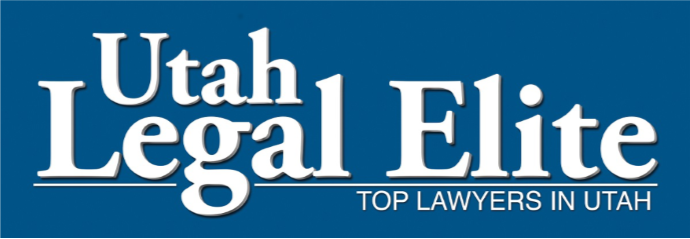Demandas
DEMANDAS
PRACTICE AREA / UTAH LITIGATION ATTORNEYS
Un principio clave de Richards Brandt es que siempre estamos preparados para perseguir o defender una demanda en el juicio. Nuestra capacidad y disposición para juzgar casos produce acuerdos favorables para nuestros clientes.
EFICIENTE
Es lo mejor para nuestros clientes que abordemos cada caso como si tuvieramos que defender ante un tribunal. Para cerrar los casos lo más rápido posible, seguimos este importante principio. Nuestros abogados han trabajado en más casos en la sala del tribunal que la mayoría de los otros bufetes de abogados en Utah, pero el litigio es solo un camino hacia la resolución.
Nuestros abogados presentan las opciones y preparan a los clientes para los posibles resultados en cada fase del proceso de resolución. En cualquier momento del proceso, es posible que usted y su abogado quieran considerar la mediación o el arbitraje. Conozca a nuestros mediadores.
EXPERIENCIA DE PRUEBA
La fortaleza de nuestro bufete de abogados radica principalmente en la profunda experiencia de nuestros abogados litigantes. Pocos bufetes de abogados en Utah tienen la experiencia en tribunales que hemos acumulado aquí en Richards Brandt.
Los abogados litigantes representan a clientes involucrados en litigios civiles y penales. El trabajo del abogado litigante requiere excelentes habilidades analíticas y un conocimiento profundo de la ley. Persuadir a un juez o jurado requiere que cada prueba sea presentada y disputada de acuerdo con un complejo conjunto de reglas. Además, los abogados litigantes revisan los archivos, se comunican con los testigos, toman declaraciones, juzgan los casos, preparan las órdenes y hablan con los clientes fuera del tribunal durante todo el caso. La preparación para un juicio puede llevar meses y, a veces, años.
COMPROMISO CON EL CLIENTE
Nuestros abogados trabajan con individuos, pequeñas empresas locales y grandes empresas internacionales. La pasión por la ley es importante, sin embargo, un compromiso con el cliente es lo que hemos construido nuestra reputación durante los últimos 40 años.
Tanto las empresas como las personas enfrentan desafíos en cada etapa de sus vidas. Hemos trabajado con clientes durante décadas protegiendo a su familia y sus medios de vida de reclamos y posibles litigios. Ganarnos la confianza de nuestros clientes a lo largo del tiempo ha sido nuestro mayor éxito. Nuestros clientes pueden contar con nosotros para evaluar riesgos, preparar documentos legales importantes y proteger sus activos a largo plazo.
“Nunca provoque un litigio. Difícilmente se puede encontrar un hombre peor que uno que hace esto”
Abraham Lincoln
ACTUALIZACIONES RECIENTES DE LITIGIOS
ABOGADOS DE LITIGIO EN RICHARDS BRANDT EN SALT LAKE CITY, UTAH
FREQUENTLY ASKED QUESTIONS (FAQS)
BUSINESS TRANSACTIONS & CORPORATE GOVERNANCE / FEATURED FAQS
P: ¿Es una LLC o una corporación adecuada para mi negocio?
Answered by:
A: To decide which entity is right for you, we look at: liability, taxation, and maintenance. Both corporations and LLC’s have limited personal liability—this means that owners are usually not responsible for business debts. However, corporations and LLC’s are taxed very differently—corporations are classified as a separate taxable entity, whereas LLC’s are typically taxed as a pass-through entity (unless you choose otherwise). And corporations and LLC’s have different levels of maintenance—LLC’s have fewer reporting requirements and can operate solely with members acting as the managers. Conversely, corporations are required to hold certain annual meetings, keep certain records, and appoint boards and officers to manage the company for the stockholders. Every situation is unique so we recommend that you consult with an attorney in making your decision. Contact our firm, Richards Brandt, if we can help you decide which entity is right for you.
P: ¿Es una LLC o una corporación adecuada para mi negocio?
Answered by:
A: To decide which entity is right for you, we look at: liability, taxation, and maintenance. Both corporations and LLC’s have limited personal liability—this means that owners are usually not responsible for business debts. However, corporations and LLC’s are taxed very differently—corporations are classified as a separate taxable entity, whereas LLC’s are typically taxed as a pass-through entity (unless you choose otherwise). And corporations and LLC’s have different levels of maintenance—LLC’s have fewer reporting requirements and can operate solely with members acting as the managers. Conversely, corporations are required to hold certain annual meetings, keep certain records, and appoint boards and officers to manage the company for the stockholders. Every situation is unique so we recommend that you consult with an attorney in making your decision. Contact our firm, Richards Brandt, if we can help you decide which entity is right for you.
P: ¿Es una LLC o una corporación adecuada para mi negocio?
Answered by:
A: To decide which entity is right for you, we look at: liability, taxation, and maintenance. Both corporations and LLC’s have limited personal liability—this means that owners are usually not responsible for business debts. However, corporations and LLC’s are taxed very differently—corporations are classified as a separate taxable entity, whereas LLC’s are typically taxed as a pass-through entity (unless you choose otherwise). And corporations and LLC’s have different levels of maintenance—LLC’s have fewer reporting requirements and can operate solely with members acting as the managers. Conversely, corporations are required to hold certain annual meetings, keep certain records, and appoint boards and officers to manage the company for the stockholders. Every situation is unique so we recommend that you consult with an attorney in making your decision. Contact our firm, Richards Brandt, if we can help you decide which entity is right for you.
BUSINESS TRANSACTIONS & CORPORATE GOVERNANCE – CASE STUDIES
Utah Manufacturing Company Needed Employment Contracts For Key Staffers
Utah Construction Company Needed Planning For Business Growth & Protection
Utah Family Enterprise Needed Guidance and Representation to Sell Business
REVIEWS
The Work-product Doctrine: Application Generally
February, 2016
Introduction
The work-product doctrine provides an attorney a certain level of autonomy regarding mental impressions, conclusions, opinions, and legal theories surrounding a case. This article discusses the applicability of the work-product doctrine generally.
Utah Work-product Generally
The work-product doctrine is a judicially created doctrine now codified in Utah Rule of Civil Procedure 26(b)(5). The work-product doctrine protects documents that are prepared in anticipation of litigation or for trial by or for another party or by or for that other party’s representative. Utah R. Civ. P. 26(b)(5). Documents that convey the mental impressions, conclusions, opinions, or legal theories of an attorney or party are afforded heightened protection as “opinion work product.” Gold Standard v. American Barrick Resources Corp., 805 P.2d 164, 168 (Utah 1990). The party asserting work-product privilege has the burden of establishing its existence. See id. at 170.
The discovery procedures under the Utah Rules of Civil Procedure were substantially amended in 2011. Subsequent Utah decisions clarify that the amended language in Rule 26 maintains the same application as the former language in Rule 26. See Allred v. Saunders, 2014 UT 43, ¶¶ 15-19, 342 P.3d 204 When interpreting the work-product doctrine, Utah courts can continue to rely on both pre-2011 Utah case law and federal case law interpreting the federal rule. See Gold Standard, 805 P.2d at 167-68; Allred, 2014 UT 43 at ¶ 17.
However, the work-product doctrine is not absolute. Non-opinion work-product may be discoverable if the party seeking discovery can show a substantial need for the information and that it cannot be obtained without substantial hardship. Id. This represents the dual policy goals aimed at preserving the adversary system and providing attorneys with a zone of privacy permitting effective client advocacy. See Featherstone v. Schaerrer, 2001 UT 86, ¶ 9, 34 P.3d 194.
Application
For written materials to fall under the work-product privilege, three criteria must be met: (1) the materials must be documents and tangible things otherwise discoverable, (2) prepared in anticipation of litigation or for trial, (3) by or for another party or by or for that party’s representative. Gold Standard, 805 P.2d at 168. For a party to assert work-product protection, the party must show that the documents or materials were prepared in anticipation of litigation by or for a party or that party’s representative. See S. Utah Wilderness Alliance v. Automated Geographic Reference Ctr., 2008 UT 88, ¶ 29, 200 P.3d 643.
In Utah, “an inquiry to determine whether a document was prepared in anticipation of litigation should focus on the ‘primary motivating purpose behind the creation of the document.’” Gold Standard, 805 P.2d at 170. Utah law seems to preclude documents that were prepared in the ordinary course of business if the primary purpose of the document was not to assist in anticipated litigation. Id. at 171 (“If in connection with an accident or an event, a business entity in the ordinary course of business conducts an investigation for its own purposes, the resulting report is producible in civil pretrial discovery.”). However, this analysis does not categorically preclude documents that have the markings of business purpose.
Documents prepared in the “regular course of business” and “in anticipation of litigation” are not always mutually exclusive and dichotomous fields.
Many business decisions are made in anticipation of the inevitable litigation. The «because of» inquiry offers a more administrable standard, effectively resolving uncertainty at the margins in favor of work product protection. At the same time, protection is not unduly expanded if the document would not have been produced but for the anticipated suit. Evaluating the risks of litigation that a business plan will face is often integral to the plan and is in this sense generated in the course of business. There is no persuasive reason to deny work product protection because the document has these marks of business purpose, if it was prepared because of the anticipated litigation.
Moore’s Federal Practice, § 26.70(3)(a).
Thus, even documents that have the markings of business purpose may be protected by the work-product privilege as long as the primary purpose of the document was to assist in anticipated litigation.
Conclusion and Recommendations
The work-product doctrine, while not absolute, allows an attorney a certain level of autonomy regarding the mental impressions, conclusions, opinions, and legal theories surrounding a case. Not all documents relied upon by an attorney in forming their legal theories will be afforded an absolute privilege, however. It is therefore imperative that business entities and individuals involved in litigation discuss the work-product doctrine with their counsel.
The contents of this piece are not legal advice, and this piece does not create an attorney-client relationship. Brad Liddell can be contacted at 801-531-2000 or brad-liddell@rbmn.com. Or visit https://www.richardsbrandt.com/practice-areas/utah/litigation-attorneys/
The Work-product Doctrine: Application to Documents Relied on and Prepared by Business Entities’ Internal Investigations
February 2016
Introduction
As litigation becomes more complex and as businesses become more sophisticated, issues begin to arise as to what documents and materials are afforded protection. For example, in construction disputes, the issue of causation is typically complex. Parties often will hire third-party consultants or engage in their own internal investigation into the issues presented. If these investigations are made at the request of a party’s attorney, the issue of work-product is less pronounced. However, where a business entity investigates and produces internal reports either before hiring an attorney or without the explicit direction of their attorney, the documents and materials relied upon and prepared may not be afforded any protection. This article discusses the applicability of the work-product doctrine to documents and materials relied upon and prepared by business entities’ internal investigation.
Utah Work-product Generally
The work-product doctrine is a judicially created doctrine now codified in Utah Rule of Civil Procedure 26(b)(5).[1]
Business Entities’ Internally Prepared Documents
Documents and materials prepared by a party may be afforded work-product protection, provided that the documents and materials were prepared in anticipation of litigation. Attorney involvement in a client’s preparation of documents and materials is only a factor to be weighed in the work-product analysis. The courts must look to the primary purpose of the client-prepared documents or materials in order to determine if the work-product privilege may be afforded. Gold Standard v. American Barrick Resources Corp., 805 P.2d 164, 168 (Utah 1990). Thus, client-prepared documents without the request of counsel do not categorically preclude the work-product privilege.[2]
In the 1990 Utah Supreme Court case Gold Standard v. American Barrick Resources Corp, Gold Standard challenged the assertion that certain memoranda prepared by Getty Oil were work-product. The Getty Oil memoranda were prepared two and a half years before a complaint by management-level employees without the involvement of counsel. Gold Standard argued that the memoranda cannot be treated as work-product because there was no attorney involvement. The court disagreed and stated that the rule in Utah is that “attorney involvement is only one factor to be weighed in determining the applicability of the work-product privilege. The fact that no attorney was involved may suggest that a document was prepared in the ordinary course of business and not in anticipation of litigation.” Id. at 170. The Utah Supreme Court stated that “an inquiry to determine whether a document was prepared in anticipation of litigation should focus on the ‘primary motivating purpose behind the creation of the document.’ If the primary purpose behind the creation of the document is not to assist in pending or impending litigation, then work-product protection is not justified.” Id. Further, “the mere possibility that litigation may occur or even the mere fact that litigation does eventually ensue is insufficient to cloak materials with the mantle of work-product protection.” Id. at 169. “If in connection with an accident or an event, a business entity in the ordinary course of business conducts an investigation for its own purposes, the resulting report is producible in civil pretrial discovery.” Id. at 171 (quoting Janicker v. George Washington Univ., 94 F.R.D. 648, 650 (D.D.C. 1982)). Thus, the court held that the memoranda were not work-product as “they were not prepared by an attorney or at the request of an attorney or by someone doing investigation at the request of an attorney; nor were they otherwise prepared to assist in litigation.” Id.
Therefore, for any business-prepared documents and materials to receive work-product protection, done without the assistance or request of an attorney, the documents and materials must be prepared with the purpose of assisting in an anticipated or actual litigation. Whether a document is prepared in anticipation of litigation is a question of fact to be determined on a case-by-case basis. See Askew v. Hardman, 918 P.2d 469, 475 (Utah 1996) (“whether a document prepared by an insurer is prepared in anticipation of litigation is a question of fact to be determined by the trial court on the basis of the evidence before it”).
Conclusion and Recommendations
While business-prepared documents and reports that were prepared in anticipation of litigation do not automatically shield those documents and reports, it does allow the business entities attorney to, at a minimum, attempt to protect work-product of the business entity. These potential situations would involve questions of fact, where the critical inquiry would be if the reports created were done so in anticipation of litigation and not in the ordinary course of business. If the subject documents or reports serves a dual purpose, i.e. a business purpose and a litigation purpose, then the claim of work-product will receive greater scrutiny. Therefore, it is a recommended best practice to engage an attorney as soon as a potential litigation is known. Where an attorney is involved and where the attorney directs the production of business-prepared documents there is a greater probability that those documents and reports receive work-product protection.
[1] For a more expansive discussion on the Work-Product Doctrine in Utah, please see a previous blog posting.
[2] Utah law seems to preclude documents that were prepared in the ordinary course of business if the primary purpose of the document was not to assist in anticipated litigation. “If in connection with an accident or an event, a business entity in the ordinary course of business conducts an investigation for its own purposes, the resulting report is producible in civil pretrial discovery.” Gold Standard, 805 P.2d at 171.
The contents of this piece are not legal advice, and this piece does not create an attorney-client relationship. Brad Liddell can be contacted at 801-531-2000 or brad-liddell@rbmn.com. Or visit https://www.richardsbrandt.com/practice-areas/utah/litigation-attorneys/











The Work-product Doctrine: Application Generally
The Work-product Doctrine: Application to Documents Relied on and Prepared by Business Entities’ Internal Investigations